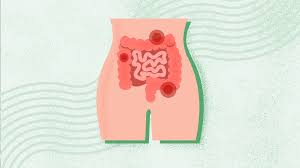Constipation, characterized by infrequent bowel movements or difficulty passing stool, can disrupt daily life and lead to discomfort. Beyond the surface, constipation can impact gut health and may hold a potential link to more serious concerns, including colon cancer. Understanding its effects and exploring solutions is fundamental for maintaining overall health.
Impact on Daily Life and Gut Health
Constipation can significantly interfere with everyday activities. Those affected often experience bloating, abdominal discomfort, and a general sense of sluggishness, all of which can reduce productivity and well-being. From a biological perspective, the gut relies on regular bowel movements to eliminate waste and maintain a balanced microbiome.
When constipation persists, waste and toxins accumulate in the colon. Over time, this disrupts gut health, potentially leading to inflammation and imbalances in beneficial bacteria, and puts one at risk of colon cancer. Such imbalances can further exacerbate gastrointestinal issues, creating a cycle that puts undue strain on digestive processes.
The Connection Between Constipation and Colon Cancer
One area of growing interest in medical research is the correlation between chronic constipation and colon cancer (colorectal cancer). While not every case of constipation leads to cancer, prolonged bowel irregularities may increase the time waste spends in the colon.
This extended contact with potentially harmful compounds can raise the risk of cellular changes that may contribute to the development of colon cancer. Chronic constipation may result in inflammation or other structural changes that affect the colon.
Though research continues to examine these links, the significance of addressing persistent constipation cannot be overstated.
Dietary Solutions to Improve Gut Function
Addressing constipation often begins with dietary adjustments, which are key in maintaining gut health. Foods high in fiber are particularly helpful, as they promote regular bowel movements by adding bulk to stool and aiding its passage through the digestive system. Whole grains, legumes, fruits, and vegetables are all excellent sources.
Hydration is another key factor in managing constipation. Drinking adequate amounts of water softens stool, making it easier to pass. Incorporating probiotics, such as yogurt, kefir, or fermented vegetables, is also helpful. These foods support the growth of beneficial gut bacteria and contribute to a healthier digestive system overall.
Lifestyle Adjustments for Long-Term Relief
Beyond diet, certain lifestyle changes can support better bowel regularity. Regular physical activity like walking may stimulate intestinal contractions, facilitating more consistent movements. Exercise is particularly effective at reducing sedentary periods, which are often associated with sluggish digestion.
Stress management is also fundamental. High levels of stress can slow digestion and disrupt bowel habits. Techniques like mindfulness or deep-breathing exercises may alleviate these effects. Establishing mindful bathroom habits is helpful. Allocating time for unhurried bathroom visits and responding to natural urges promptly will prevent stool from hardening and becoming more difficult to pass.
Find Out More About Colon Cancer Screening
Constipation, while common, can profoundly impact health and well-being. Left untreated, it may disrupt gut health and carry potential links to colorectal cancer.
You can reduce its impact and improve digestive function by making dietary changes, adopting a more active lifestyle, and seeking medical advice when necessary. To prioritize preventive care, contact a gastroenterologist to learn more about colon cancer screening.
Related Articles
Addressing Complex PTSD with Interventional Psychiatry
The Importance of Physical Activity in Long-Term Weight Loss





